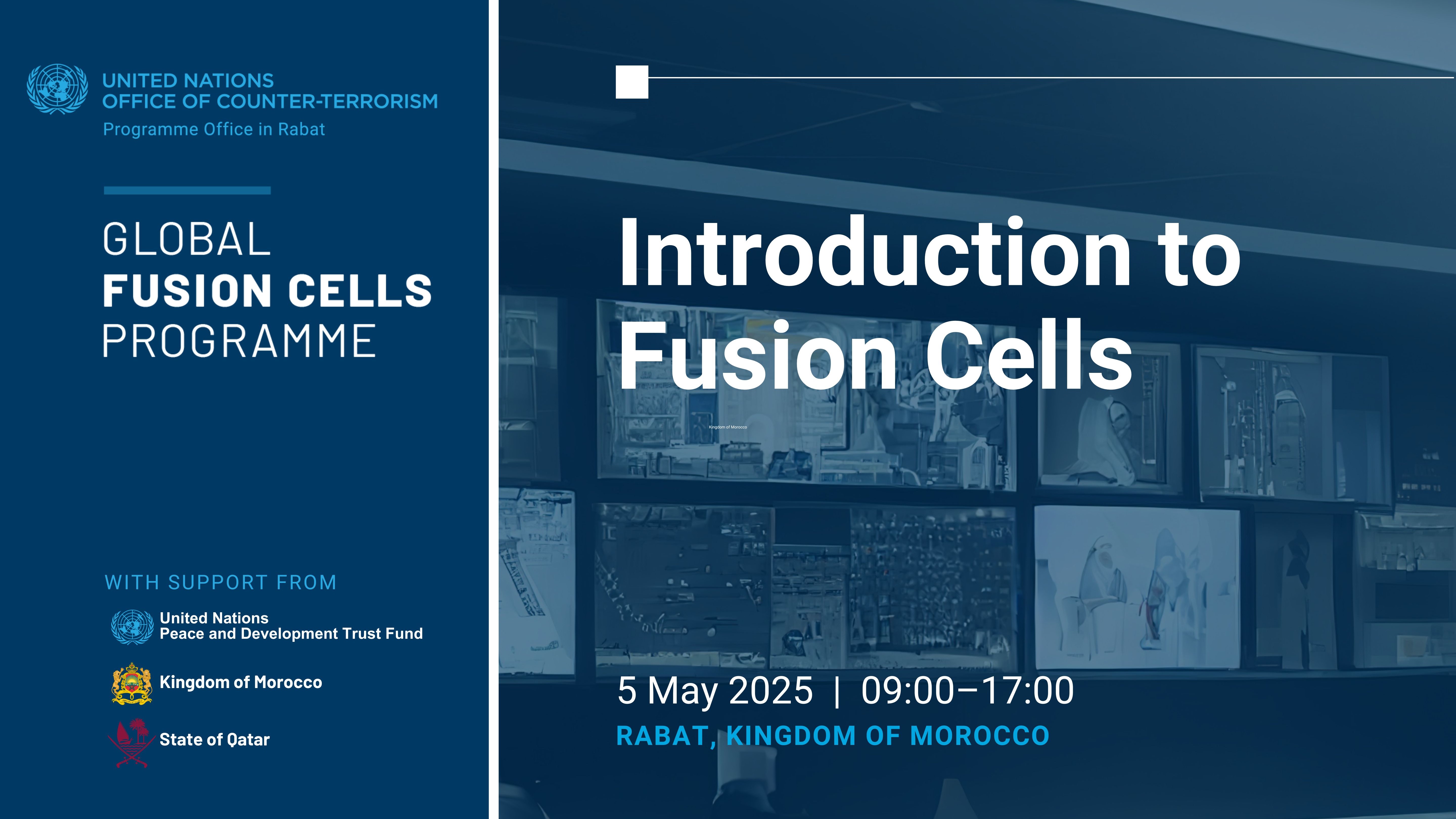UNOCT Global Fusion Cells Programme delivered a specialized counter-terrorism training for African countries
The United Nations Office of Counter-Terrorism (UNOCT) Global Fusion Cells Programme held a series of counter-terrorism training courses for officials from Equatorial Guinea, The Gambia, Ghana, Liberia, Malawi, Nigeria, and Sierra Leone.
The training courses were delivered in partnership with the Kingdom of Morocco, and the UNOCT Programme Office and Training Centre in Rabat, with the support of the United Nations Peace and Development Trust Fund. During the two-week training, held from 5 to 16 May 2025, the trainees developed a comprehensive understanding of several core competencies essential for analysts working within national interagency coordination mechanisms, law enforcement units, counter-terrorism centers, and security services.
Participants acquired skills on effectively breaking down intra-governmental silos, facilitating information sharing, managing coordinated operations across agencies, and leveraging databases and standard operating procedures in compliance with international humanitarian law.
In addition, the trainees enhanced their knowledge in using decision-making models based on international best practice, and the ability to brief and debrief stakeholders on critical incidents, operations, and threat analyses. Participants also learned to safely generate intelligence using open sources, including through collecting terrorist information, monitoring social media platforms, and capturing evidence online.
The training covered a range of topics, including:
- Gender and human rights: Trainees increased their knowledge of and ability to work in compliance with key human rights law for law enforcement in Africa, including the Robben Island and Luanda Guidelines and Menendez Principles for investigative interviewing. The Gender module covered key gender considerations in both countering terrorism, with the aim of mainstreaming gender responsive approaches in compliance with international standards.
- Interagency coordination: Trainees enhanced their understanding of the intelligence fusion process and fusion centres, including their roles in national and international counter-terrorism frameworks, main challenges faced, and international best practices to improve interagency coordination and information exchange.
- Ethical decision-making: Trainees developed an in-depth understanding of decision-making and problem-solving, as well as essential skills at various management levels. To this end, trainees increased awareness of personal decision-making attributes and practiced applying problem-solving and decision-making models.
- Briefing and debriefing: Trainees developed an in-depth understanding of how to effectively brief and debrief, which is an essential skill for all counter-terrorism and law enforcement staff.. Trainees developed various briefing and debriefing styles and techniques to ensure that the communication of their analysis or an event is clearer, more organized, and useful to decision-makers.
- Open-source investigations: Led by expert trainers from Morocco, trainees enhanced their knowledge of collecting and analyzing information using open-source data to support an intelligence-led counter-terrorism investigation. Trainees also enhanced their understanding on how to conduct an open-source investigation, including: securing their online work environment, utilizing an OSINT collection plan, setting up their OSINT investigation, gathering data from search engines and social media platforms, employing analysis techniques such as network analysis and relationship mapping, and finalizing the intelligence product while considering ethical and legal implications throughout.

UNOCT Global Fusion Cells Programme aims to equip security officials, particularly analysts, with the tools and knowledge they need to effectively combat terrorism. By providing a series of training courses, the programme helps strengthen the capacity of security and law enforcement agencies across Africa.




